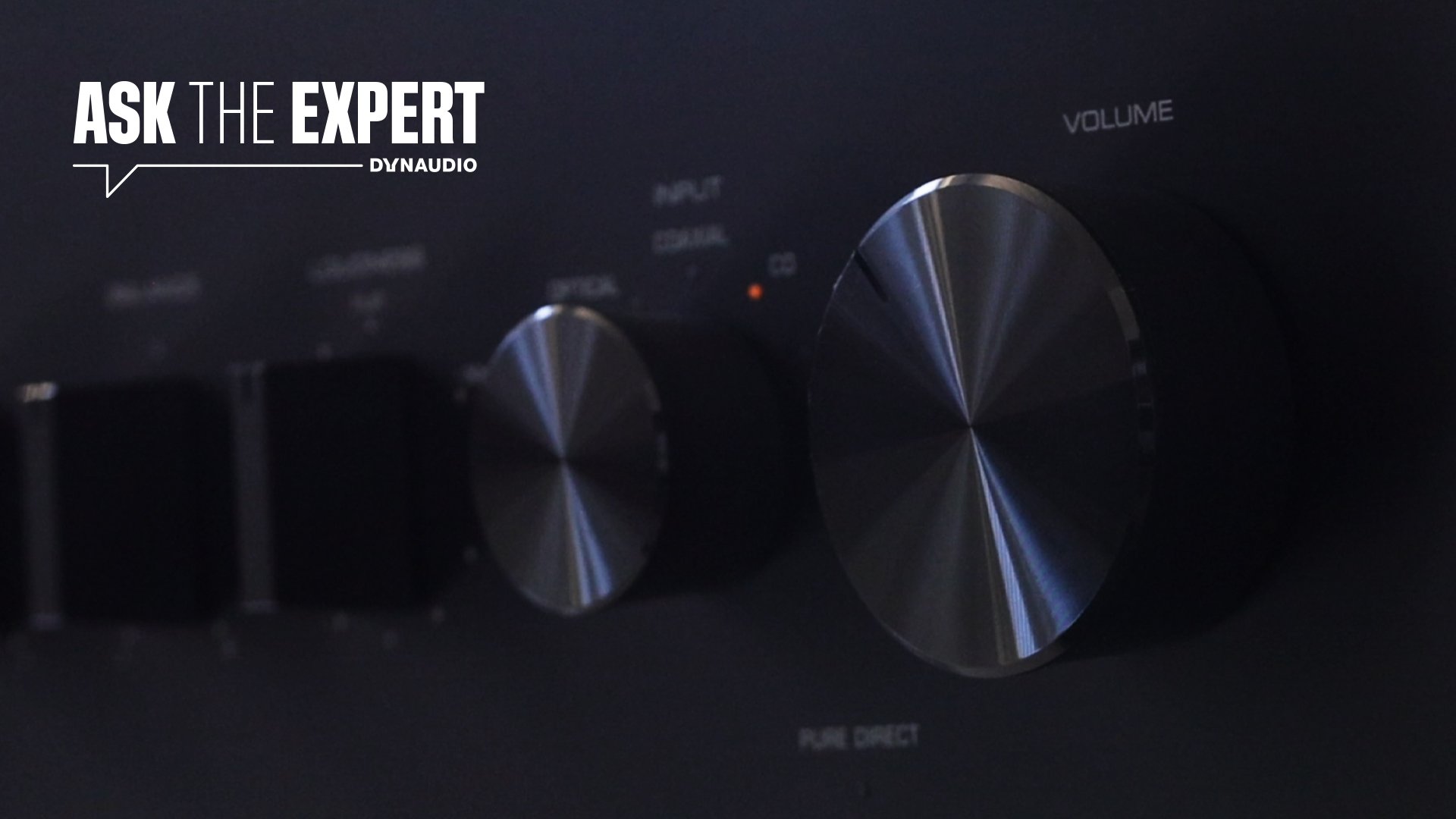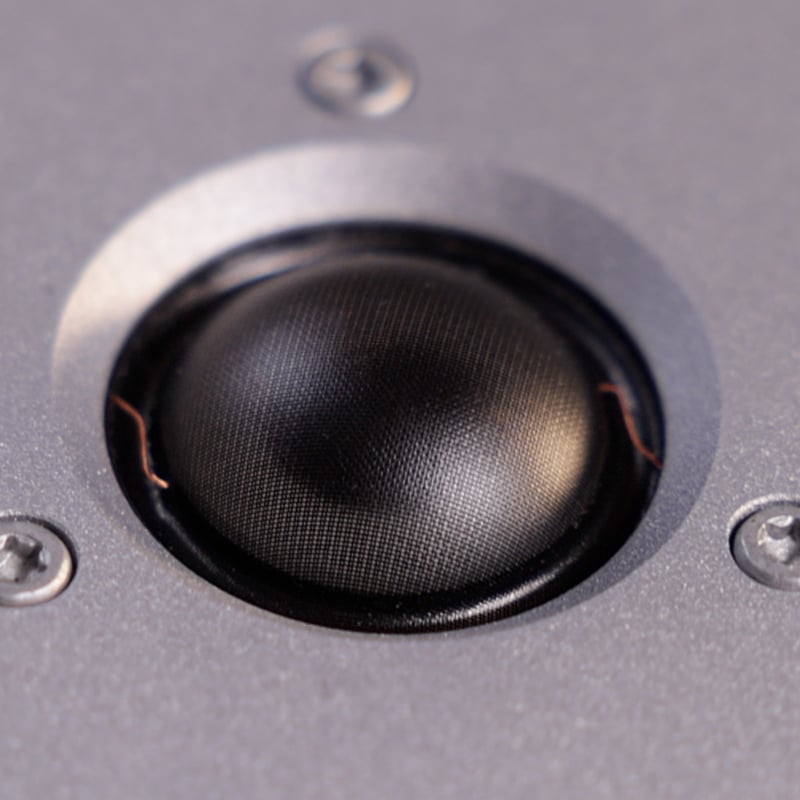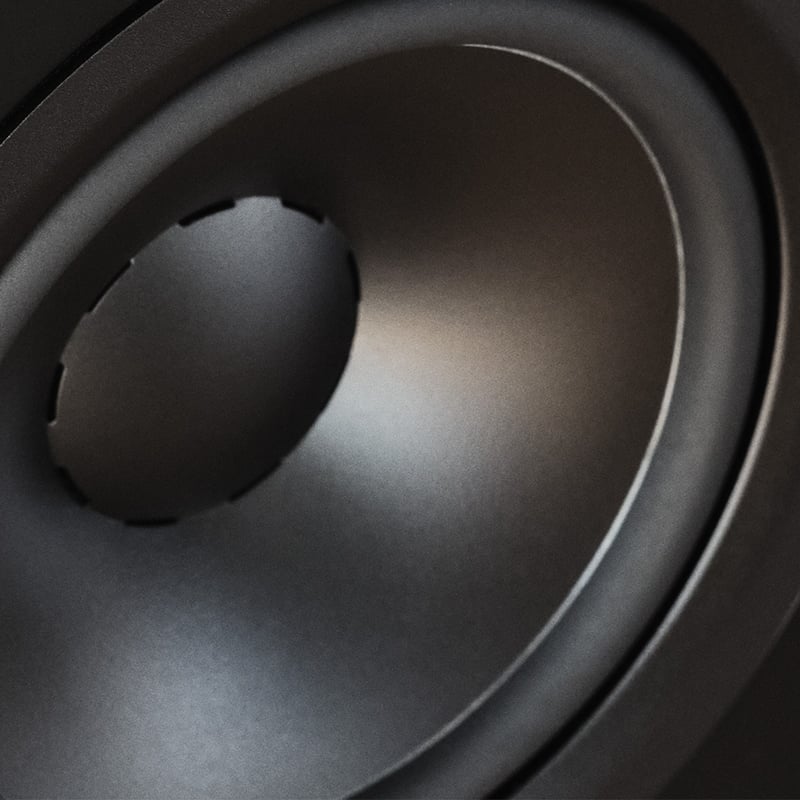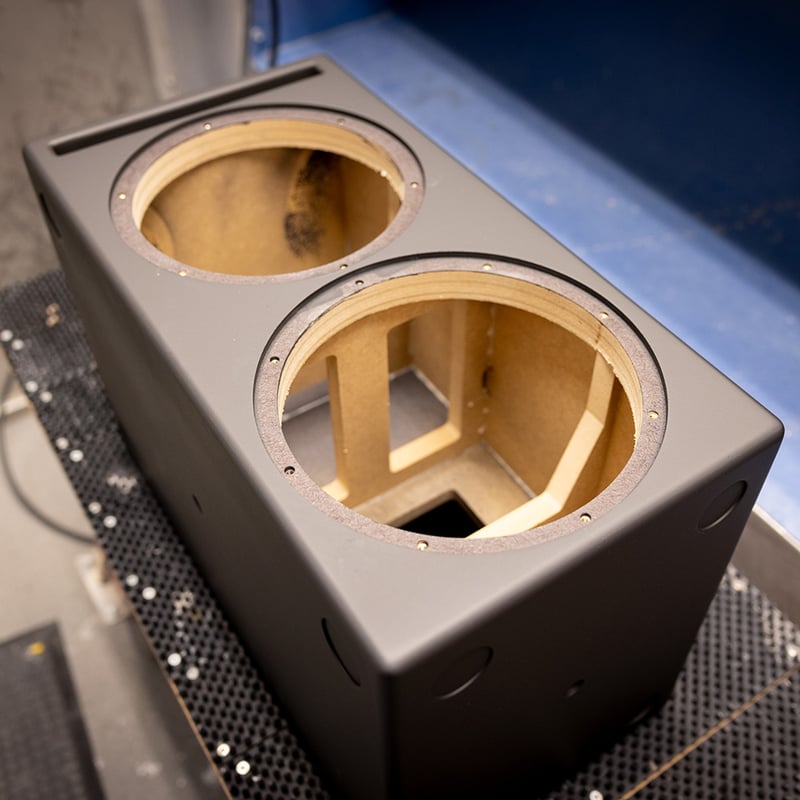On this episode of Ask The Expert we'll be putting your power-related concerns to rest, by explaining exactly what power means for your loudspeakers.
Do you have any lingering questions for our audio experts? If so, don't be shy! Send us your questions via the form at the bottom of this page and we'll do our best to answer them in a future episode of Ask The Expert.
How much power do my speakers require?
In order to discuss power in loudspeakers, let's first start out by defining what exactly the term "power handling" means. People often tend to think of it in terms of power supplies. But an amplifier is not a power supply, and therefore it's not a particularly helpful comparison when we are talking about matching an amplifier to a loudspeaker. We'll explain further.
An amplifier contains power supply, of course, but the power you're actually delivering to the loudspeaker is controlled by the volume control. This means that there is no fixed amount of power (usually expressed as a number) needed in order to drive the loudspeaker, because how hard you're driving the loudspeaker depends entirely on the volume control. When you turn up the volume, you increase the voltage going into the loudspeaker. When you turn down the volume, you decrease the voltage.
Therefore, the amount of power you actually need depends on a lot of factors, in particular room size and sound pressure level (SPL) i.e how loud you want to play your music. And, these things are actually linked more to your amplifier's capabilities, than to your speakers' specifications. To mention some examples, if you were to suddenly double the size of the room and double the listening distance, then you would need four times as much power from your amplifier in order to deliver that extra output. That's four times as much power from your amplifier – not your speakers.
Another example would be if you wanted to double the perceived sound pressure level – a doubling of that requires a 10 dB increase in loudness. But doubling the power into the speaker gives you only a 3 dB difference, meaning that – in order to actually double the perceived loudness – you would need ten times as much power going into the loudspeaker.
This example just goes to show that your perception of how loud you want your music is inextricably linked to the how much power you demand of your amplifier. As a last example, if you want to play loudly in a large room, you might even need 40 times as much power going into the same loudspeaker. That's 40 times as much power as what otherwise might perfectly suffice for a lower volume in a smaller room. The difference really can be that big.
Another thing to keep in mind is content, i.e bass, middle, treble. We'll explain: if you half a frequency (i.e make it lower) then the energy required to produce that frequency at the same sound pressure level becomes four times as much. So just like when we double the listening distance, frequencies at 30 Hz require four times as much input power to be reproduced, as those playing at the same loudness level but at a higher frequency of 60 Hz. So the content, i.e how much bass, and how much deep bass is in the content of the music, will significantly determine how much power you need to be putting into the loudspeaker. We can see then that the question of power handling really is a combination of many factors.
In terms of power handling and power requirements, the difference between loudspeakers is typically a matter of only a few decibels. And, as discussed above, often the difference is in how you are using your speakers. For these reasons, it's very difficult to simply give you a number and say "this is how much amplifier power you need for your specific loudspeaker," because every scenario is different, and we're not necessarily familiar with every user scenario.
Can too much power damage my speakers?
Here at Dynaudio, we often get the impression that one of the reasons that people are so focused on power handling is because they are afraid of breaking their loudspeakers.
It is true enough that you can indeed damage your speaker by playing too loud, so let's take a look at why a loudspeaker might "break." There are two main things that can typically cause damage to a loudspeaker, when we're talking about passive loudspeakers.
The first one is if you're trying to play louder than your amplifier can handle, in which case you get clipping from the amplifier. Clipping occurs when an audio signal becomes overdriven (because the amplifier doesn't have enough outout power, for example) and the peaks of the wave literally get "clipped" so that the signal becomes a square wave. A square wave will force a lot of high-frequency energy into the tweeter, and therefore you risk the tweeter burning out. So, if your amplifier is too small compared to how hard you are you are trying to drive your speakers, you risk damaging your speakers.
Based on that, it could be assumed that you need only ensure that your amplifier is big and powerful enough, and you'll never damage your speaker. Unfortunately, this is not the case.
There is one other thing that can damage a passive loudspeaker, and that is too much input power over a long period of time. If you drive a speaker very loudly over a long period of time, it will inevitably get hot. And, in fact, there's a limit to how hot your speaker can get before the voice coil starts to boil – literally.
This can happen even if the input is not clipping, simply from the fact that your input power is too high for too long a period of time. So be mindful of this, and protect your speakers by using the volume control diligently. If you can hear distortion, or something else that doesn't sound right, turn the volume down.
As long as you do that, there shouldn't be anything to worry about. It's very uncommon to damage a loudspeaker without having heard something wrong first, so as long as everything sounds OK, your speakers are perfectly safe.
Send us your questions
Don't forget to submit your questions to our experts via the form below – they might just get featured in a future episode of Ask The Expert!








1 comments